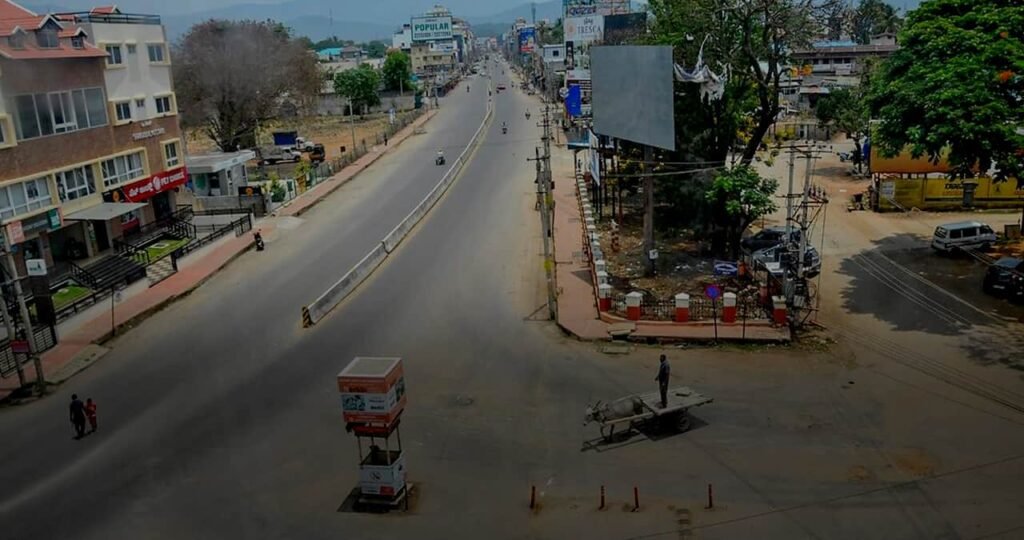With an eye on the situation of the second wave of corona pandemic in the country, the Supreme Court on Sunday has ordered the central and state governments to take serious consideration towards the lockdown.
The court said that it’s an appeal to the central and state governments to stop such activities where there is a possibility of a large number of people gathering. The government can also put a lockdown in the public interest to prevent the spread of the virus but as we know that the social and economic impact of the lockdown can have an impact on marginalized communities and workers, In that case, the government imposes a lockdown, then they should make arrangements in advance keeping in mind the needs of these communities.
On the other hand, the court also mentioned that in any state or union territory, patients will not be denied hospitalization or giving necessary medicines even if they do not have an identity card.
Continuing on the same, A three-judge bench court consisting of Justice DY Chandrachud along with Justices L Nageswara Rao and S Ravindra Bhatt asked the central government to formulate a national policy to admit patients to hospitals within two weeks and policy should be shared with all states and union territories, but till then no patient should be denied hospitalization or necessary medicines if they do not have a local residence certificate or identity certificate.
Admitted that the hospitalization of the patient during the second wave of the Covid-19 epidemic has emerged as the biggest challenge before the people, The Supreme Court, in its order said that People have been left to arrange their own essential equipment due to which they are facing a lot of difficulties. Different state and local administrations are following their different rules. There are different standards regarding the recruitment of patients in different hospitals, which is causing chaos in the country and uncertainty is increasing. In any case, there should be no further delay in this matter.
The court ordered the central government to use its statutory power under the Disaster Management Act to form the necessary national policy, which will have to be followed As Having this kind of policy will ensure that the one who needs treatment does not have to return empty-handed from the hospital, that too without his mistake.
What did the court say about the lack of oxygen?
The court stated that the central government, along with the state governments, should create a buffer stock of oxygen so that it is not deficient in unforeseen circumstances and also supplies can be ensured. Also, if found necessary, oxygen can be supplied quickly so that this stock should be kept in different places.
The court said that Emergency stock should be created for emergency use within four days and according to the amount of current allocation and that stock should be filled daily in addition to the supply of oxygen to the states.
After the solicitor general’s assurance, the court said that the central government should ensure that the low oxygen supply to Delhi is within two days, or that Delhi should be given oxygen by midnight on the 3rd of May.
The court said that in an attempt to impose responsibility on one another for not supplying oxygen or not, the lives of common people cannot be put at risk, and as this is the time of national disaster and in such a situation it is most important to save people’s lives. It is the joint responsibility of both the central government and the Delhi government to work together to improve the situation.
Is the court against those seeking help on social media?
The court asked the central government and state governments to order the chief secretaries and police chiefs of all states and territories to take action against those who post information on social media or are seeking or providing help and also ordered to send a copy of the order to the District Magistrate of all the countries. Strict action will be taken on the same.
Taking cognizance of the issue of lack of oxygen, shortage of essential medicines and vaccine policy in the country in the midst of the Covid-19 pandemic, the court has initiated a hearing and issued an order and the hold of the next hearing will be held on 10 May.
The court ordered that till that time, the central government should review all the rules and efforts related to the availability of oxygen, availability of corona vaccine and its prices, availability of essential medicines at reasonable rates.
In view of the cases of corona infection that are increasing during the second wave of the pandemic, by taking cognizance of the case on April 22 the Court has asked the Central and State Governments to tell the court about the efforts being made to stop the virus by issuing a notice to the Central Government seeking information about the government’s efforts to control the “dangerous situation” created by the epidemic and also to tell that in the near future What steps are they planning to take?
